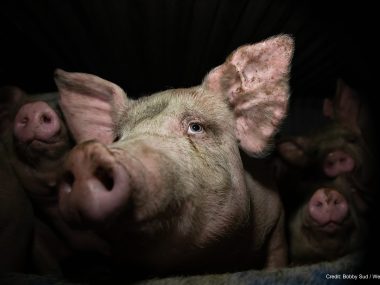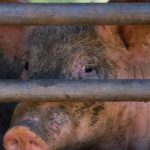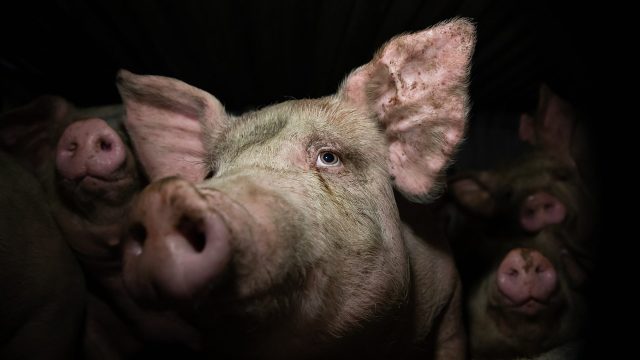
Holding Slaughterhouses Accountable for Water Pollution
Cape Fear River Watch v. Environmental Protection Agency
The Animal Legal Defense Fund joined a coalition of conservation and community groups in filing a lawsuit against the Environmental Protection Agency for failing to update national standards restricting water pollution from slaughterhouses.
Status
Next Step
Thousands of slaughterhouses across the country rely on outdated pollution-control technology, resulting in contamination of our waterways. After the Environmental Protection Agency (EPA) refused to update national standards regulating pollution from slaughterhouses, a coalition of conservation and community groups sued.
Who is being sued, why, and under what law? The coalition filed the lawsuit under the Clean Water Act against the EPA after the agency failed to revise federal water pollution standards for slaughterhouses that discharge processed wastewater into waterways or facilities that send wastewater to sewage plants before discharging into rivers and streams. These standards were last updated 15 years ago, and more than a third of slaughterhouses operate under guidelines from the 1970s. The Clean Water Act mandates that the EPA set such standards and review them annually to determine whether they comply with the latest in pollution-control technology.
What court is the lawsuit filed in? The United States Court of Appeals for the Fourth Circuit
Why this case is important: Technology that can reduce pollution exists, and the EPA has recognized slaughterhouses are one of the largest industrial sources of nitrogen water pollution without updated standards.
But instead of protecting the environment and public health, the federal government is giving slaughterhouses, which kill more than 8 billion chickens, 100 million pigs, and 30 million cows annually, a free pass by allowing them to operate under ineffective and outdated water pollution standards. These plants discharge contaminants such as blood, oil, grease, and fats, as well as nitrogen and phosphorous pollution. The costs of their pollution are borne largely by communities with lower incomes whose drinking water is jeopardized, as well as neighboring wild animals who depend on clean water to survive.
Sign Up!
Join the Animal Legal Defense Fund's email list to stay up to date on lawsuits, legislation, and regulations affecting animals.
Recent News
-
ALDF Partners with Advocates to Challenge EPA for Discarding Slaughterhouse Water Pollution Rules
10 Organizations petition federal court over EPA’s abandonment of rules to reduce pollution from meat processing industrySeptember 19, 2025 News -
Pigs and Public Health Act Reintroduced in the U.S. House to Prohibit Slaughter of Downed Pigs
Bill will reduce the risk of zoonotic disease transmission and foodborne illness by establishing new standards for non-ambulatory, or “downed” pigsJuly 25, 2025 Press Release -
Lawsuit Filed to Force USDA to Provide FOIA Documents Related to the Beef Checkoff Program
The agency has a history of approving promotional content funded by the program with false and misleading claims about beef’s environmental impactsJuly 17, 2025 Press Release
Related Cases
-
Challenging Factory Farms’ Exemption from Pollution Reporting Requirements
Rural Empowerment Association for Community Help v. United States Environmental Protection Agency
-
Protecting Pigs from Cruel High-Speed Slaughter
Farm Sanctuary v. U.S. Department of Agriculture
-
Demanding the USDA Regulate the Mass Disposal of Farmed Animals During the COVID-19 Pandemic
Petition to the USDA submitted in June 2020
Looking for case and legal resources? View Resources
See More






